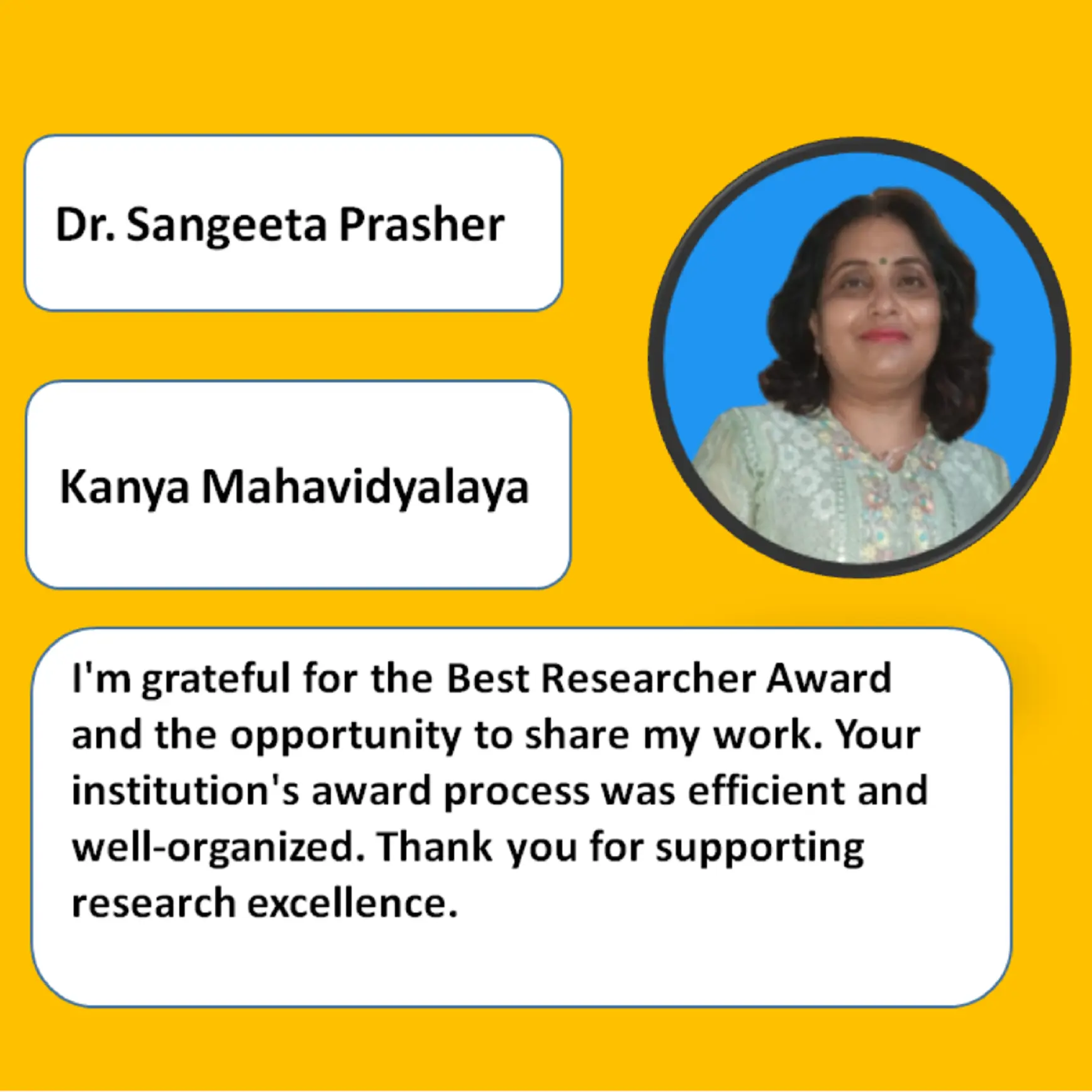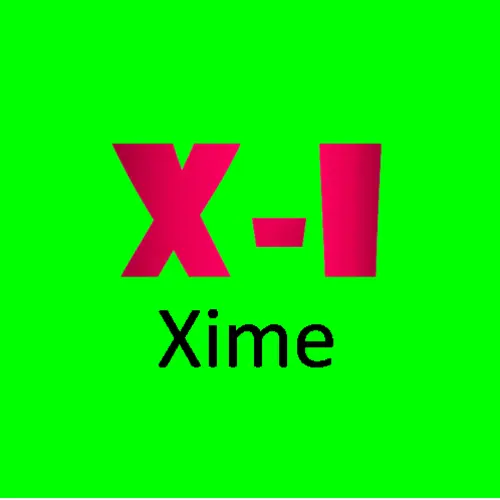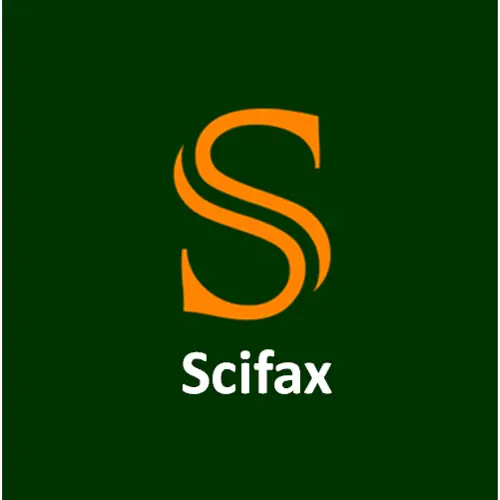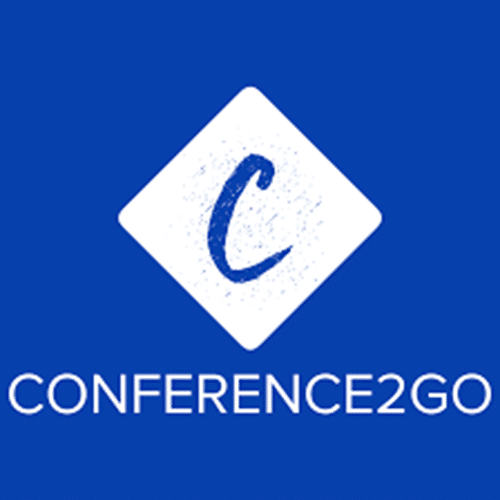International Popular
Scientist Awards

About the Event
About the Award
The International Popular Scientist Awards are awards that are given to individuals or teams for their outstanding contributions to a specific field of research. These awards recognize excellence in original research, innovative thinking, and the quality and impact of published work. Typically, the awards are open to researchers from around the world and are presented at international conferences, symposiums, or academic events. The selection criteria for the awards may vary, but they typically consider factors such as the originality and significance of the research, the rigor of the methodology, and the quality and impact of the publication. Winning an International Popular Scientist Awards can be a significant achievement for a researcher or research team, as it recognizes their expertise and contributions to their field. It can also provide additional recognition and visibility for their work, which can help to further their careers and increase opportunities for collaboration and funding.
What does the award include
The profile of the award winners of each category be listed on our website and it will be maintained forever.
The certificate, medal, and Memento, and photographs will be a testimony. Further, this recognition and additional proof of hard work and achievements must be globally accessible for Researchers and hence will be available online 24/7.
It’s an indicator of success Enhances the reputation improves the benchmark –it’s a matter of pride – Motivation – Raises the visibility of the success.
Theme
Theme
Popular scientist awards are prestigious honors given to individuals who have made significant contributions to the field of science and have gained recognition for their achievements. These awards acknowledge and celebrate the groundbreaking work, discoveries, and advancements made by scientists across various disciplines. They highlight the significant contributions and achievements of scientists across various disciplines, promoting innovation, knowledge, and the betterment of society.
Objectives
Objectives
Promoting Excellence: The awards aim to highlight and celebrate Popular Scientist that demonstrate excellence in research, writing, and scholarly contribution. By recognizing exceptional works, they encourage and inspire authors to strive for high standards of quality in their research publications.
Encouraging Innovation: The awards seek to encourage innovative research that pushes the boundaries of knowledge and introduces new perspectives, methodologies, and approaches. They aim to promote groundbreaking and transformative research that has the potential to make a significant impact in respective disciplines.
Fostering Collaboration: These awards often encourage interdisciplinary research and collaboration by recognizing Popular Scientist that bridge multiple fields and integrate diverse perspectives. By doing so, they promote cross-disciplinary dialogue and encourage scholars to explore new avenues of inquiry.
Promoting visibility and recognition: Winning an International Popular Scientist Awards can provide significant recognition and visibility for a researcher or research team, helping to further their careers and increase opportunities for collaboration and funding.
Organizers
Organizers
Academic Institutions: Universities and research institutions often organize Popular Scientist awards to recognize the scholarly achievements of their faculty, researchers, and affiliated authors. These awards may be specific to a particular discipline or cover a range of fields.
Professional Associations and Societies: Professional associations and societies in various fields of study organize Popular Scientist awards to honor outstanding contributions to their respective disciplines. These organizations aim to promote excellence and advance knowledge within their specific fields of expertise.
Publishers and Publishing Organizations: Publishing houses and organizations dedicated to scholarly publishing may organize Popular Scientist awards to recognize exceptional works in their publication portfolios. These awards may cover a wide range of academic disciplines and aim to promote high-quality research publications.
Date and location
International Popular Scientist Awards- Science Father in group of
29th Edition of International Popular Scientist Awards 29-30 December 2025 | Dubai, United Arab Emirates
Popular Scientist Awards
Researcher Awards
Young Scientist Award: The Young Scientist Award is a prestigious recognition given to young researchers and scientists who have made outstanding contributions to their respective fields. The award acknowledges the achievements and potential of young individuals in advancing scientific knowledge and promoting innovation. The criteria for the Young Scientist Award may vary depending on the organization or institution granting the honor. Typically, recipients are early-career scientists under a certain age threshold, often in their 35, although specific age limits may differ. Their research work is evaluated based on its quality, originality, impact, and contribution to the field. The Young Scientist Award is often presented in various scientific disciplines, including physics, chemistry, biology, engineering, medicine, computer science, and social sciences. It aims to encourage young researchers to continue their innovative work, recognize their accomplishments, and provide them with visibility within the scientific community.
Best Researcher Award: This Awarded to the Best researcher in any field for their significant contribution to the advancement in their field of expertise. The qualification of the nominee must be recognized and documented by corresponding successes in research contributions, such as Collaborations, Contracts, and Publications. Eligibility: A working professional can nominate for the Award. There is no age limit for Best Researcher Award category.
Outstanding Scientist Award: Exceptional research record of significant contribution to the institute/company. The qualification of the nominee must be recognized and documented by corresponding successes in research contributions, such as Grants, Patents, Collaborations, Contracts, books, and Publications. Eligibility: A working professional can nominate for the Award. He must be above 40 years of age as of the conference date.
Lifetime Achievement Award: This awards an Exceptional research record of significant contribution to the institute/company. The qualification of the nominee must be recognized and documented by corresponding successes in research contributions, such as Grants, Patents, Collaborations, Contracts, books, and Publications. Eligibility: A working professional can nominate for the Award. He must be above 40 years of age as of the conference date.
Women Researcher Award: Awarded to the Best women researcher in any field for their significant contribution to the advancement in their field of expertise. The qualification of the nominee must be recognized and documented by corresponding successes in research contributions, such as Collaborations, Contracts, and Publications. Eligibility: A working professional can nominate for the Award.
Best Innovation Award: This Awarded to researchers/institutes/Organizations who are in the early stage of their careers for outstanding innovation in their field. This award is bestowed with the motive of identifying and Recognizing the Researchers/institutes/organizations around the world who have the potential to become leaders n their field. The qualification of the nominee must be recognized and documented by corresponding successes in research contributions, such as Collaborations and Publications. Eligibility: A working professional/ Institute/ Organization can nominate for the Award.
Best Faculty Award: This Awarded to the Best Faculty in any field for their significant contribution to the advancement in their field of expertise. The qualification of the nominee must be recognized and documented by corresponding successes in research/ Academic contributions, such as Collaborations, Contracts, and Publications. Eligibility: A working professional can nominate for the Award. He must be under no age as of the conference date.
Best Scholar Award: This Awarded to Scholar/ Student who are in the early stage of their career for outstanding research in their field. This award is bestowed in the motive of identifying and Recognizing the young Researchers scholar/ Student around the world who have the potential to become leaders n their field. The qualification of the nominee must be recognized and documented by corresponding successes in research contributions, such as Publications. Eligibility: A scholar can nominate for the Award.
Best Extension Activity Award: The term "best extension activity award" is not a widely recognized or standardized award category. However, it could refer to an award given to an individual or organization that has excelled in designing and implementing extension activities that effectively engage and benefit the community. Extension activities are initiatives that extend knowledge, resources, and services from academic institutions, research organizations, or other entities to the broader community. These activities aim to apply scientific or academic knowledge in practical ways, promote education, address societal challenges, and enhance the well-being of individuals and communities.
Excellence in Innovation: Excellence in Innovation is a broad and prestigious recognition given to individuals, teams, or organizations that have demonstrated exceptional innovation and creativity in their respective fields. It celebrates groundbreaking ideas, products, services, processes, or approaches that have made a significant impact and brought about positive change. The criteria for Excellence in Innovation may vary depending on the context and the specific award or recognition program.
Excellence in Research: Excellence in Research is a prestigious recognition given to individuals or teams who have made exceptional contributions to their respective fields through their research work. This award acknowledges and celebrates the significant impact, originality, and quality of their research endeavors. The Excellence in Research award is typically granted by universities, research institutions, professional societies, or funding agencies. It aims to honor researchers who have demonstrated excellence in their research activities, pushing the boundaries of knowledge and making notable advancements in their disciplines.
Best Keynote Speaker: When looking for the best keynote speaker for an event, it is essential to consider the specific objectives, target audience, and desired outcomes. Researching potential speakers, watching their previous presentations, and seeking recommendations or references can help in identifying individuals who align with the event's requirements.
Best Committee Member: The best committee members are dedicated and committed to the committee's objectives and responsibilities. They actively participate in meetings, promptly respond to communications, and fulfill their assigned tasks and duties in a timely manner. Expertise and Knowledge: Committee members should possess relevant expertise and knowledge in the field or area the committee focuses on. Their expertise enables them to provide valuable insights, contribute to decision-making processes, and offer informed perspectives on critical matters.
How to Apply
How to Apply
The Candidates with eligibility can click the "Nominate /Submit Your Profile (CV) Now" button and fill up the online submission form and Submit it.
This section describes the total Research Awards processes in step by steps:
- Received Nomination documents will be sent for the screening process
- Acknowledgment intimation via email will be communicated to the Nominee
- The team may ask the proof for the credits mentioned in the Resume.
- Cross verifying the documents submitted & forwarding it to the Committee.
- The selected candidate indicated through email. Also, the selected nominees will be checked anytime on the website track of my submission.
- Event and Celebration Registration
- Release of the winners list in the official web page
- Award presentation ceremony
- Release of the Award winners and his profile Report.
Registration
Registration Details
Registration Covers
- An exclusive web page for a highly rated profile of the award winners will always be available online.
- Participation in Award event Session and Keynote session.
- Certificate, Memento, and Photographs.
- Event Kit, Tea, Coffee & Snacks.
- Veg & Non-Veg Lunch during the Event.
- Event and Celebration Registration
- Release of the winners list in the official web page
- Award presentation ceremony
- Release of the Award winners and his profile Report.
Registration Procedure
Click the “Register Now” button at the conference page and enter your Entry ID in the Search Box
Your Submissions will be listed on that page. You can find the Register Now link beside your submission. Click the link and now you will be redirected to the Award registration form where you can make your registration using credit/debit cards
| Title | First Name | Last Name | Institution/Organization | Country |
|---|---|---|---|---|
| Dr | JAHANGIR | RATHER | Government Degree college Pulwama | India |
| Prof | Javed | Iqbal Qazi | University of the Punjab | Pakistan |
| Prof | Seulki | Song | Chungnam National University | South Korea |
| Dr | Tayeb | Benhalima | Centre de Recherche Scientifique et Technique en Analyses Physico- Chimiques | Algeria |
| Dr | Rajeev | Tyagi | CSIR-Institute of Microbial Technology (IMTECH), Chndigarh | India |
| Prof | NABIL | YAFOUR | Etablissement hospitalier et universitaire 1(er) Novembre 1954, service d'hématologie et de thérapie cellulaire,Université d'Oran 1, Ahmed-Ben-Bella, Oran, Algérie | Algeria |
| Dr | Ilya | Ulasov | Sechenov First State Medical University | Russia |
| Assist Prof Dr | Ratheesh | M | St. Thomas College Palai, Kottayam, Kerala | India |
| Dr | Mahroze | Fatima | University of Veterinary and Animal Science, Lahore, Pakistan | Pakistan |
| Dr | Pierre-Yves | Robillard | Centre Hopsitalier universitaire Sud-Reunion | Réunion |
| Ms | Jingjing | Wang | College of Civil Engineering, Tongji University | China |
| Assist Prof Dr | Amit Kumar | Sharma | Central University of Himachal Pradesh | India |
| Dr | Aida | Affouri | Faculty of Sciences of Sfax, University of Sfax, Tunisia | Tunisia |
| Assoc Prof Dr | Zohreh | Sadeghian | Shahid Chamran University of Ahvaz | Iran |
| Mr | Chala | Mamude | Forestry development | Ethiopia |
| Mr | Melsew Amsalu | Wubneh | universty of gondar | Ethiopia |
| Assist Prof Dr | Durre | Aden | jamia hamdard | India |
| Mr | Hailemariam | Demissie | Ethiopian Institute of Agricultural Research | Ethiopia |
| Mrs | Nalla | Shirisha | MLR INE OF TECHNOLOGY | India |
| Prof | Saeid | Eshghi | Shiraz University | Iran |
| Mr | Mohammed | Seid | Arba Minch University | Ethiopia |
| Assoc Prof Dr | Melesse | Maryo | Ethiopian Biodiversity Institute | Ethiopia |
| Dr | Shahid | Adeel | Governemtn College University Faisalabad | Pakistan |
| Dr | Bosena | Ayele | Addis Ababa University | Ethiopia |
| Assist Prof Dr | Ahmed | Hassen | Woldia University | Wallis and Futuna |
| Title | First Name | Last Name | Institution/Organization | Country |
Instructions
General Instructions to Nominees
- The candidates with proper eligibility are requested to submit the online nomination form in order to get nominated for the award.
- If your nomination is accepted by our Judges, we will send you an email regarding your profile selection.
- Awardees must register for the event.
- Dress Code: Award Recipients have to wear a formal dress. There are no restrictions on color or design. The audience attending only the ceremony can wear clothing of their own choice.
- General Information: Each winner's name will be called & asked to collect their Awards on the Stage with an official photographer to capture the moments.
Terms & Conditions
Terms & Conditions
Terms & Conditions Policy was last updated on June 26, 2023.
Privacy Policy
This awards Customer personal information for our legitimate business purposes, to process and respond to inquiries, and provide our services, to manage our relationship with editors, authors, institutional clients, service providers, and other business contacts, to market our services and subscription management. We do not sell, rent/ trade your personal information to third parties.
Relationship
Science father awards Operate a Customer Association Management and email list program, which we use to inform customers and other contacts about our services, including our publications and events. Such marketing messages may contain tracking technologies to track subscriber activity relating to engagement, demographics, and other data, and to build subscriber profiles.
Disclaimer
All editorial matters published on this website represent the opinions of the authors and not necessarily those of the Publisher with the publications. Statements and opinions expressed do not represent the official policies of the relevant associations unless so stated. Every effort has been made to ensure the accuracy of the material that appears on this website. Please ignore, however, that some errors may occur.
Responsibility
Delegates are personally responsible for their belongings at the venue. The Organizers will not be held accountable for any stolen or missing items belonging to Delegates, Speakers, or Attendees; due to any reason whatsoever.
Insurance
Registration fees that do not include insurance of any kind.
Press and Media
Press permission must be getting from the Popular Scientist Awards Conferences Organizing Committee before the event. The press will not quote speakers or delegates unless they have obtained their approval in writing. This conference is not associated with any commercial meeting company.
Transportation
Please note that any (or) all traffic and parking is the responsibility of the registrant.
Requesting an Invitation Letter
For security purposes, the letter of invitation will be sent only to those individuals who had registered for the conference. Once your registration is complete, please contact contact@popularscientist.com to request a personalized letter of invitation.
Cancellation Policy
If cancel this event for any reason, you will receive a credit for 100% of the registration fee paid. You may use this credit for another Primary healthcare award which must occur within one year from the date of cancellation.
Postponement Policy
If postpone an event for any reason and you are unable or indisposed to attend on rescheduled dates, you will receive a credit for 100% of the registration fee paid. You may use this credit for another Popular Scientist Awards event which must occur within one year from the date of postponement.
Transfer of registration
All fully paid registrations are transferable to other persons from the same organization if the registered person is unable to attend the event. The registered person must make transfers in writing to contact@popularscientist.com. Details must include the full name of an alternative person, their title, contact phone number, and email address. All other registration details will be assigned to the new person unless otherwise specified. Registration can be transferred from one conference to another conference of Popular Scientist Awards if the person is unable to attend one of the meetings. However, Registration cannot be transferred if it will be intimated within 14 days of the particular conference. The transferred registrations will not be eligible for Refund.
Visa Information
Keeping given the increased security measures, we would like to request all the participants to apply for Visa as soon as possible. Popular Scientist Awards will not directly contact embassies and consulates on behalf of visa applicants. All delegates or invitees should apply for Business Visa only. Important note for failed visa applications: Visa issues cannot come under the consideration of the cancellation policy of Popular Scientist Awards, including the inability to obtain a visa.
Refund Policy
Regarding refunds, all bank charges will be for the registrant's account. All cancellations or modifications of registration must make in writing to contact@popularscientist.com. If the registrant is unable to attend and is not in a position to transfer his/her participation to another person or event, then the following refund arrangements apply:
Keeping given advance payments towards Venue, Printing, Shipping, Hotels and other overheads, we had to keep Refund Policy is as following conditions,
- Before 60 days of the Conference: Eligible for Full Refund less $100 Service Fee
- Within 60-30 days of Conference: Eligible for 50% of payment Refund
- Within 30 days of Conference: Not eligible for Refund
- E-Poster Payments will not be refunded.
Refunds for eligible requests will typically take between 30 to 90 days to be received after the date of the event. We strive to process refunds as expeditiously as possible, but this timeframe allows us to ensure accuracy and compliance with our policies (Date of updated October,04 2023)
Accommodation Cancellation Policy
Accommodation Providers such as hotels have their cancellation policies, and they generally apply when cancellations are made less than 30 days before arrival. Please contact us as soon as possible if you wish to cancel or amend your accommodation. Popular Scientist Awards will advise the cancellation policy of your accommodation provider, before withdrawing or changing your booking, to ensure you are fully aware of any non-refundable deposits.
Sponsorship
Sponsorship
Science father warmly invites you to sponsor or exhibit at International Conference. We expect participants more than 200 numbers for our International conference will provide an opportunity to hear and meet/ads to Researchers, Practitioners, and Business Professionals to share expertise, foster collaborations, and assess rising innovations across the world in the core area of mechanical engineering.
Sponsorship Details
Diamond Sponsorship
- Acknowledgment during the opening of the conference Complimentary Booth of size 10 meters square
- Four (4) delegate’s complimentary registrations with lunch
- Include marketing document in the delegate pack
- Logo on Conference website, Banners, Backdrop, and conference proceedings
- One exhibition stand (1×1 meters) for the conference
- One full cover page size ad in conference proceedings
- Opportunities for Short speech at events
- Opportunity to sponsors conference kit
- Opportunity to sponsors conference lanyards, ID cards
- Opportunity to sponsors conference lunch
- Recognition in video ads
- 150-word company profile and contact details in the delegate pack
Platinum Sponsorship
- Three (3) delegate’s complimentary registrations with lunch
- Recognition in video ads
- Opportunity to sponsors conference lunch
- Opportunity to sponsors conference lanyards, ID cards
- Opportunity to sponsors conference kit
- Opportunities for Short speech at events
- One full-page size ad in conference proceedings
- One exhibition stand (1×1 meters) for the conference
- Logo on Conference website, Banners, Backdrop, and conference proceedings
- Include marketing document in the delegate pack
- Complimentary Booth of size 10 meters square
- Acknowledgment during the opening of the conference
- 100-word company profile and contact details in the delegate pack
Gold Sponsorship
- Two (2) delegate’s complimentary registrations with lunch
- Opportunities for Short speech at events
- Logo on Conference website, Banners, Backdrop, and conference proceedings
- Include marketing document in the delegate pack
- Complimentary Booth of size 10 meters square
- Acknowledgment during the opening of the conference
- 100-word company profile and contact details in the delegate pack
- ½ page size ad in conference proceedings
Silver Sponsorship
- Acknowledgment during the opening of the conference
- One(1) delegate’s complimentary registrations with lunch
- Include marketing document in the delegate pack
- Logo on Conference website, Banners, Backdrop, and conference proceedings
- ¼ page size ad in conference proceedings
- 100-word company profile and contact details in the delegate pack
Individual Sponsorship
- Acknowledgment during the opening of the conference
- One(1) delegate’s complimentary registrations with lunch
Sponsorship Registration Fees
| Details | Registration fees |
| Diamond Sponsorship | USD 2999 |
| Platinum Sponsorship | USD 2499 |
| Gold Sponsorship | USD 1999 |
| Silver Sponsorship | USD 1499 |
| Individual Sponsorship | USD 999 |
Exhibitions
Exhibitions
Exhibit your Products & Services
Exhibit your Products & Services in our Event of the International Popular Scientist Awards. Exhibitors are welcomed from Commercial and Non-Commercial Organizations related to Nano Materials and Nano Technology.
The best platform to develop new partnerships & collaborations.
Best location to speed up your route into every territory in the World.
Our exhibitor booths were visited 4-5 times by 80% of the attendees during the conference.
Network development with both Academia and Business.
Exhibitor benefits
Exhibit booth of Size-3X3 sqm.
Promotion of your logo/Company Name/Brand Name through the conference website.
Promotional video on company products during the conference (Post session and Breaks).
Logo recognition in the Scientific program, Conference banner, and flyer.
One A4 flyer inserts into the conference kit.
An opportunity to sponsor 1 Poster Presentation Award.
Target Countries
Target Countries
Afghanistan| Albania| Algeria| Andorra | Angola| Antigua and Barbuda| Argentina| Armenia| Australia| Austria| Azerbaijan| Bahamas| Bahrain| Bangladesh| Barbados| Belarus Belgium| Belize| Benin| Bhutan| Bolivia| Bosnia and Herzegovina| Botswana| Brazil| Brunei| Bulgaria| Burkina Faso| Burundi| Cabo Verde| Cambodia| Cameroon| Canada| Central African Republic| Chad| Chile| China| Colombia| Comoros| Democratic Republic of the Congo| Republic of the Congo| Costa Rica| Cote d'Ivoire| Croatia| Cuba| Cyprus| Czech Republic| Denmark| Djibouti| Dominica| Dominican Republic| Ecuador| Egypt| El Salvador| Equatorial Guinea| Eritrea| Estonia| Swaine| Ethiopia| Fiji| Finland| France| Gabon| Gambia| Georgia| Germany| Ghana| Greece| Grenada| Guatemala| Guinea| Guinea-Bissau| Guyana| Haiti| Honduras| Hungary| Iceland| India| Indonesia| Iran| Iraq| Ireland| Israel| Italy| Jamaica| Japan| Jordan| Kazakhstan| Kenya| Kiribati| Kosovo| Kuwait| Kyrgyzstan| Laos| Latvia| Lebanon| Lesotho| Liberia| Libya| Liechtenstein| Lithuania| Luxembourg| Madagascar| Malawi| Malaysia| Maldives| Mali| Malta| Marshall Islands| Mauritania| Mauritius| Mexico| Micronesia| Moldova| Monaco| Mongolia| Montenegro| Morocco| Mozambique| Myanmar (Burma)| Namibia| Nauru| Nepal| Netherlands| New Zealand| Nicaragua| Niger| Nigeria| North Korea| North Macedonia| Norway| Oman| Pakistan| Palau| Panama| Papua New Guinea| Paraguay| Peru| Philippines| Poland| Portugal| Qatar| Romania| Russia| Rwanda| Saint Kitts and Nevis| Saint Lucia| Saint Vincent and the Grenadines| Samoa| San Marino| Sao Tome and Principe| Saudi Arabia| Senegal| Serbia| Seychelles| Sierra Leone| Singapore| Slovakia| Slovenia| Solomon Islands| Somalia| South Africa| South Korea| South Sudan| Spain| Sri Lanka| Sudan| Suriname| Sweden| Switzerland| Syria| Taiwan| Tajikistan| Tanzania| Thailand| Timor-Leste| Togo| Tonga| Trinidad and Tobago| Tunisia| Turkey| Turkmenistan| Tuvalu| Uganda| Ukraine| United Arab Emirates| United Kingdom| United States| Uruguay| Uzbekistan| Vanuatu| Vatican City| Venezuela| Vietnam| Yemen| Zambia| Zimbabwe.
Award Categories
Researcher Awards
Young Scientist Award | Best Researcher Award | Outstanding Scientist Award | Lifetime Achievement Award | Women Researcher Award | Best Faculty Award | Best Innovation Award| Best Extension Activity Award | Excellence in Innovation | Excellence in Research | Best Keynote Speaker | Best Committee Member | Best Scholar Award |
Institute/ Organization Awards
Excellence in Innovation | Excellence in Research | Excellence Award (Any Scientific field) | Best Research | Innovation Extension activity
Award Subject Tracks
Astronomy and Astrophysics | Biology and Life Sciences | Chemistry and Materials Science | Environmental Science | Medicine and Health Sciences | Computer Science and Artificial Intelligence | Mathematics | Social Sciences | Engineering and Technology | Neuroscience | Communication and Outreach | Robotics and Automation | Energy and Sustainability | Genetics and Genomics | Nanotechnology | Quantum Science | Ecology and Conservation | Cognitive Science | Biotechnology | Data Science and Analytics | Humanities and Science Integration | Renewable Energy Technologies | Astrobiology | Molecular Biology | Artificial Neural Networks | Educational Innovation in Science | Advanced Materials Engineering | Mathematical Modeling in Ecology | Cybersecurity and Cryptography | Space Exploration Technologies | Human-Computer Interaction | Oceanography and Marine Biology | Renewable Energy Technologies | Agricultural Science and Innovation | Astrobiology | Molecular Biology | Artificial Neural Networks | Educational Innovation in Science | Advanced Materials Engineering | Social Impact of Scientific Discoveries | Mathematical Modeling in Ecology | Agricultural Science and Innovation | Cybersecurity and Cryptography | Space Exploration Technologies | Human-Computer Interaction | Social Robotics | Chemical Ecology | Evolutionary Biology | Planetary Science | Cosmology and Physics |





















